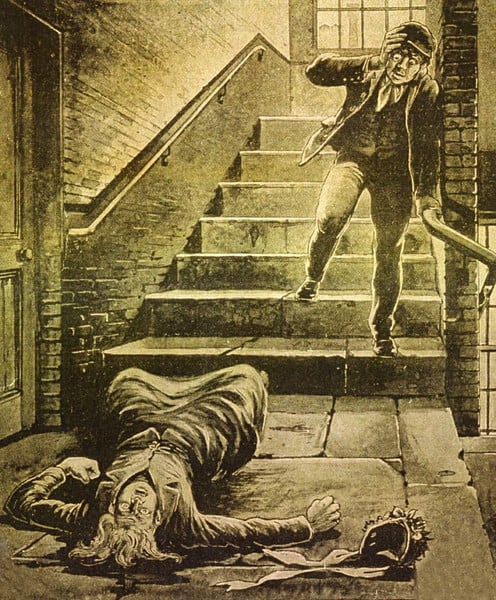By the 17th August 1888 the police, so it appears, had given up any hope that Mary Connolly (“Pearly Poll”) would provide them with any useful information that might lead them to the perpetrator of the George-yard murder.
She had, so Echo, told its readers picked out two men at the Wellington Barracks, but they were both proved to have been nowhere near the crime scene at the time of the murder and were therefore ruled out of any involvement in the murder.
THE POLICE SEARCHED THE SEWERS
The police, so the article went on to report, searched the sewers around George-yard buildings in the hope of finding the murder weapon but this search had also proved fruitless.
A POSSIBLE CLUE
However, so Echo reported, “the officers engaged in elucidating the mystery of George-yard buildings have, it is believed, at last obtained a clue.”
Apparently, a woman, who lived in the vicinity, had come forward to say that a man had “taken a bed in her house” at around midnight on the night of the murder. He told her that he had “lost his train for the country” and so was unable to return home that night. She told police that he had been wearing military uniform.
Although her story had been looked into by the police, the newspapers were unable to report the results of those enquiries which, at the time of going to press, were “not yet known.”
However, so Echo eagerly told its readers, “some importance is attached to the clue.”
CRIES OF MURDER
The paper was also able to provide its readers with a more information about John Reeves, the dock labourer who had discovered Martha Turner’s body.
Apparently his wife, Louisa, had heard cries of “Murder!” earlier on the night of the murder, but she was now certain that they had come from elsewhere and, therefore, “they could not possibly have been heard by her if they had proceeded from the dying woman.”
A SENSE OF FOREBODING
However, she told reporters that both she and her husband had spent a restless night on the night of the murder and had woken several times with a dreadful sense of foreboding and apprehension that “something was about to happen.”
Indeed, although “not a scream was heard by them”, Mr Reeves had felt compelled to go to the door and listen. “I could not say why,” Mrs. Reeves told a reporter, “but I knew something would happen out of the ordinary, for me and my old man were never so much disturbed before, though we almost nightly hear cries of ‘Murder!’ and ‘Police!’ We pay no attention to them whatever.”

Indeed, when her husband initially found Martha Turner’s body, he was, she said, afraid to tell her of his discovery for fear she would “go into a fit.”
SOMETHING WE COULD NOT UNDERSTAND
Commenting on her apparent premonition, Louisa Reeves observed that “we weren’t awoken by screams, but there was something we could not understand, that seemed to tell us that trouble was at hand.”
Then, reflecting on the effect the atrocity had had on the immediate neighbourhood, she told the reporter how “that dreadful murder has disturbed us all here, and it will be some time before we quiet down and forget last Bank Holiday night.”
